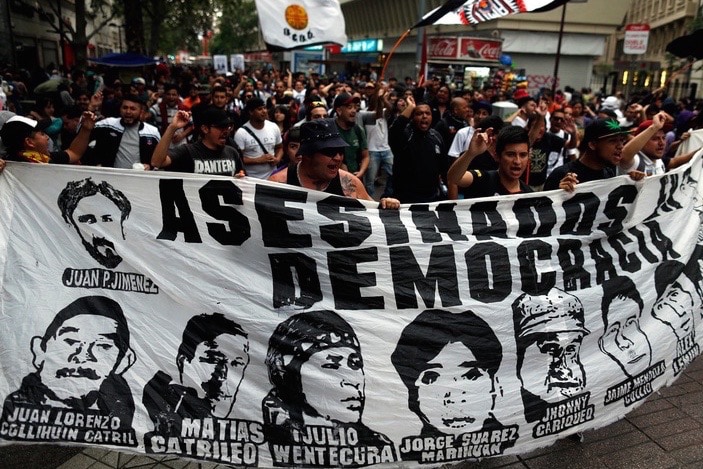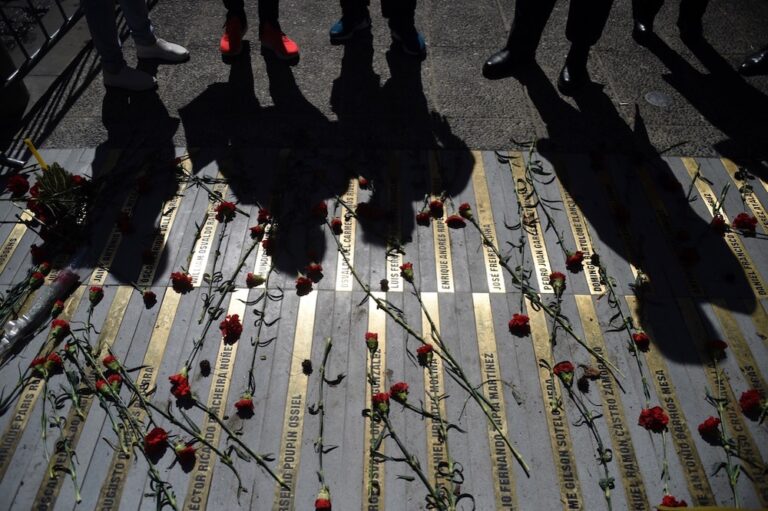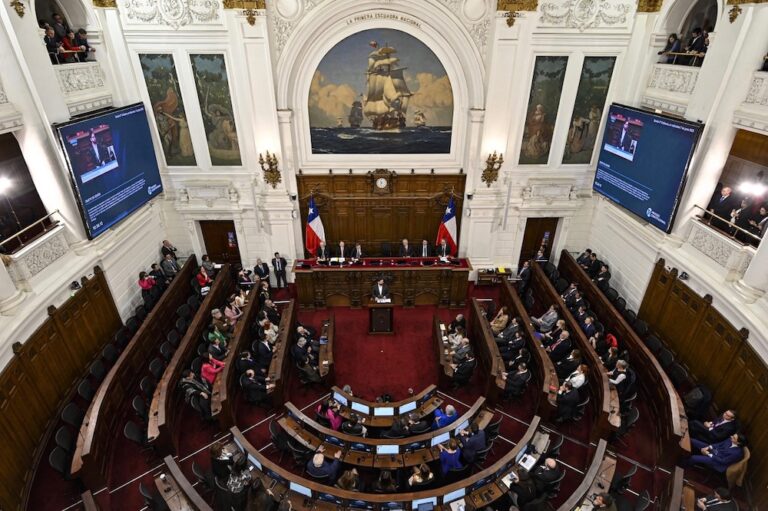The most prominent Mapuche journalist-activist in Chile, Pedro Cayuqueo campaigns for indigenous rights in an increasingly volatile environment.
Suppressing a protest with force…is like trying to put out a fire with gasoline.
On the night of 3 September 2005, sixteen-year old José Huenante was carousing with his friends on the side of the road in Puerto Montt, southern Chile. They were drinking beer and acting up, and when a police patrol car passed by they reportedly threw stones at it before running away. The police gave chase and called in another 12 officers to assist. Everyone escaped except for Huenante, who was bundled into patrol car 1375. He was never seen again.
An investigation into the teenager’s disappearance uncovered falsified arrest records, intimidation of his family by the police, and a wealth of lies told by the arresting officers. Eleven years after Huenante disappeared the investigation is still ongoing, no-one has been punished and the arresting officers still have their jobs.
That Chile’s first forced disappearance since the end of the Pinochet dictatorship was an indigenous Mapuche might have been a coincidence, but it was not a surprise; for the Mapuche journalist, Pedro Cayuqueo, it was part of a long, violent pattern.
To Huenante’s name Cayuqueo could add Alex Lemún, 16, Matías Catrileo, 22, and Jaime Mendoza, 24: all unarmed, all killed by police bullets; the list of Mapuches killed with impunity by the Chilean police is long. “Is a young Chilean worth more than a young Mapuche?” Cayuqueo asked in a 2011 article. “Absolutely!” was his answer.
Cayuqueo, 41, is Chile’s foremost indigenous journalist and one of its best-known Mapuche rights defenders. An outspoken activist since the mid 90s, he founded Chile’s two most prominent Mapuche newspapers, Mapuche Times and Azkintuwe (now defunct). Born into an indigenous rural community in the Auracanía region of southern Chile, but schooled in the city, his first taste of racism came at nine (courtesy of a Chilean friend’s mother); from then on, he kept a diary, recording his experiences as a Mapuche child in a predominantly white society: “The Ann Frank of the Auracanía,” he joked in a 2014 interview with CNN Chile. His writing style is provocative and often sardonic. In a media environment in which indigenous opinion is either ignored or rarely given sympathetic coverage, Cayuqueo has done more than anyone to make the Mapuche voice heard. Most importantly, he has exposed to a general audience the current reality of the centuries-old conflict between the Mapuche people and the state – and the widespread discrimination that it has fuelled.
The Mapuche conflict is a dispute over land that the Chilean State seized from indigenous people and handed to private businesses. Many Mapuches feel aggrieved by this and, on a few occasions, there have been attacks on property or, more rarely, landowners. Most Mapuche activism, however, involves peaceful ‘occupations’ of their ancestral lands. The authorities generally respond to this with extreme violence and an over-zealous application of anti-terror legislation, which the UN Special Rapporteur on human rights and counter-terrorism has said is “applied in an arbitrary fashion,” “discriminates against the Mapuche,” “undermines the right to a fair trial,” and contributes to an “extremely volatile” situation.
Cayuqueo has devoted much of his journalism to exposing the injustices rooted in the conflict, and to denouncing the sometimes bizarre behaviour of the Chilean state which conflates peaceful protests with terrorist activity, links Mapuche activists to terrorists in Iraq, and makes overblown declarations about alleged ties between Mapuche protesters and terrorist groups like the FARC. He has also been damning about the police’s use of agent provocateurs to implicate peaceful Mapuche protest groups in acts of violence.
In this tense, increasingly combustible atmosphere, those rare journalists who do not follow the government line on Mapuche issues can face threats from the police or even arrest. Cayuqueo, caustically critical of presidents and police, has been harassed and detained numerous times: in 2003, he was sentenced to 61 days’ imprisonment after being arrested at a 1999 land occupation (the police also confiscated 200 copies of his newspaper, Azkintuwe); in 2005, before he was due to attend a meeting of indigenous journalists in Canada, he was incarcerated again for the alleged non-payment of a fine related to his 1999 charges; in 2012, after returning from Argentina where he had been promoting his first book about Chile’s discriminatory treatment of the Mapuches, Cayuqueo was detained once more – again ostensibly in connection with the 1999 land occupation – by police who refused to release him immediately despite being ordered to do so by a local judge.
Yet despite the antipathy of the authorities, Cayuqueo’s own professional progress is evidence of how his work has gone some way in combating discrimination by changing the way Mapuches are seen in the media: this one-time youthful land protester received the Ibero-American Journalism Award in 2013, and now presents – unthinkable for a Mapuche a decade ago – a television series devoted to indigenous issues on CNN Chile.



